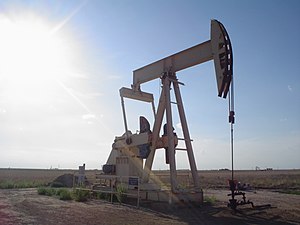On the heels of the recent spike in gas prices, energy professionals are descending on Houston for one of the largest energy shows, CERAWeek, hosted by IHS CERA. Oil and gas executives, economists and IHS CERA staff will be speaking to the abundance and diversity of our worldwide and domestic resources, the controversy surrounding current technology and the issues facing supply and demand.
The conference couldn’t be better timed as GOP nominees debate energy policy and the issues surrounding it, in hopes to unseat the incumbent president in November. It doesn’t help that the current nuclear threat coming from Iran has prompted international sanctions, which has raised gas prices in addition to the increasing energy demand in developing nations.

There is no doubt that America is one of the world's largest importers of oil but as demand in these growing nations continues, the conversation surrounding pricing and exploration will be greatly realized. Speakers this week will look at oil and gas exploration and development around the world in unchartered areas and the technology that will be needed to fulfill new production within those areas.
The real message this week will be how the oil and gas industry can forge a critical business path to develop the resources we have domestically but more importantly how they can be extracted from our own “backyards” in an environmentally conscious way.
The recent past has shown that environmental concerns hovering over the industry are very emotionally charged. In states like Pennsylvania and New York, citizens have rallied together supplying thousands of comments in an effort to impose new policies or keep past moratoriums in place over air and water concerns.
“Regulatory agencies are moving forward at an impressive pace,” said Maryam Brown, Chief Counsel, Subcommittee on Energy and Power, House Energy and Commerce Committee. This same committee believes that regulatory reform will be central to the United States energy debate in the upcoming election year.
Companies as well are entrenched in the energy debate and the growing concerns for increased environmental performance as well as health and safety that have become part and parcel to doing business. “It has to be a core competency just as much as 3D seismic,” said Mark Brownstein, Deputy Director, Energy Program, Environmental Defense Fund.
Evidenced by speakers across all panels was the lack of understanding they believe the public has. The hardest part for the industry will be to educate the public and help them understand the distinct and contrasting differences that development plays across shales and the diversity of various regulations that are being proposed and imposed.
While some shale’s require technologically intensive extraction techniques others are less complicated, less deep and are composed of softer rock elements. “Citizens should know that casing is dependent on geological conditions state-by-state,” said Stanford University Geophysics Professor, Mark Zoback. He stressed that while regulations might be good for one state, it might not be for another. The statement seemed like such an obvious remark to the group, the mere reminder however served to underscore the lack of knowledge the public has on the topic.
The conference is poised to show that there is an obvious effort to move the industry forward in an ever-growing effort to meet demand. There is also an obvious attempt by opposition to halt that momentum. Both domestic and worldwide supply is growing, but the complexity of doing business in the United States could prove to shape the industry either for us or against us.
World demand is growing whether we are on board or not. That same demand will continue to drive the current $125 per barrel pricing and that is if we are producing at home or not. We may want to be less dependent on oil, but the world, especially in growing economies is not. The question this conference will ask is, are we ready to become sustainable with our resources or without them? And if we choose to harness the energy we have, how can the energy industry and the public do so in a way where conservation is king and we let businesses operate within reason.

































